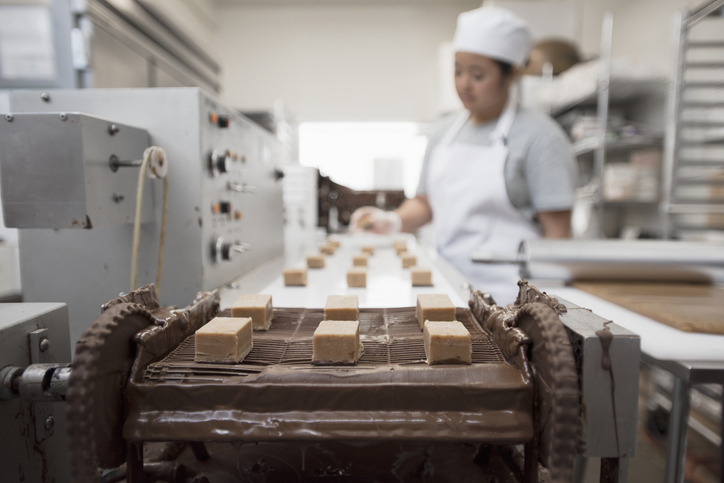Thursday, December 26, 2024
Nougat, marzipan, polvoron cookies, and chocolate bombons are just some of the options that many of us will eat during Christmas, when these foods are eaten in abundance. According to an analysis prepared by the Ministry of Agriculture, Fisheries and Food, each Spanish person consumed around 0.70 kilos in 2023, which represented a 4% increase from the previous year.
With an average expense of 7.90 euros per person, organizations like the Madrid Artisan Pastry Entrepreneurs Association expect that by 2024, 1.5 million kilograms of these sweets will be sold. Nougat, in all its types, is the most in demand with a projected consumption of 700,000 kilograms. At the nationwide level, per capita spending on nougat and marzipan in 2023 was 6.02 euros, with a consumption per capita of half a kilo. These two products, for example, generated a turnover in the domestic market of 278.3 million euros and almost 70 million euros in exports—with the United Kingdom and the United States being the main importing countries. Thanks to their prominence at Christmas, the percentage of sales during these dates accounts for almost 90% in terms of value for the entire year.
Energy efficiency at the heart of production
Companies specialized in producing these sweets are promoting their commitment to energy sustainability. Companies like La Estepa and Nestlé are making energy-efficiency improvements in their factories.
La Despensa de Palacio, the iconic polvoron cookie factory in La Estepa in the province of Seville, installed 39 solar panels powered at 405W each, meeting more than 73% of the electricity demand of its two buildings, the production plant and a museum dedicated to chocolate. Other companies that have opted for renewable energy include Torrons Vicens, with 514 state-of-the-art photovoltaic modules of 545 W, which allow them to reach self-consumption for almost half of their needs; or Chocolates Trapa, which has installed 1,926 solar panels, and has decided to offset its environmental footprint by planting over 16,000 trees as of 2023 throughout Spain.
For Nestlé, a pilot project launched in 2021 is currently underway in collaboration with the Global Nature Foundation, to reduce greenhouse gas emissions in more than half of the farms that supply milk to the food company, which is later used to produce products such as chocolate. In this regard, they will reduce over 43,600 tons of CO2 equivalent emissions this year in 90 out of the 177 farms collaborating with the Swiss multinational company. Finally, for several years now they have been incorporating electric trucks into their fleets to carry out the most frequent journeys in their logistics chain.
Eco-design and kilometer 0
In the challenge of achieving greater efficiency in producing Christmas sweets, some companies also opt for initiatives such as ecodesign and kilometer zero-based production. In this sense, El Lobo nougat has a selection with local ingredients. In other words, for their Alicante nougat—also known as the hard nougat—they use Mediterranean almonds (60%), 100% Spanish-origin honey, whole cane sugar, and free-range egg whites from nearby farms. In addition, for sustainable packaging, they only use 100% recycled cardboard and the nougat wrapping is 100% recyclable.
Delaviuda Confectionery Group, one of the leading companies in this sector, explains in its latest annual report that they installed a new wrapping machine for Cacao Sampaka, which improves the packaging process for products such as chocolate in bulk, bars and pralines, preventing raw materials from being wasted.
What are the initiatives outside Spain?
Although, as we have seen, these products are mainly consumed in Spain, outside the country, there are other initiatives in the confectionery sector, where different emerging companies are betting on biotechnology to achieve responsible progress in this field. The rise in cocoa prices caused the world price for cocoa to increase by 55% between December 2023 and last October, reaching $6,582.86 per ton, according to data from the International Cocoa Organization (ICCO).
In light of this situation, food technology companies focused on developing alternative solutions to cocoa and chocolate. Among them is Celleste Bio, which recently raised $4.5 million in a round of funding to develop their cell-growing cocoa ingredients. Instead of growing on land, this startup uses a plant cell cultivation platform and Artificial Intelligence to grow this product in indoor bioreactors throughout the year. According to Celleste Bio's website, only one cocoa pod is needed to obtain one ton of cocoa butter.
Foreverland is an Italian startup that has created an algarroba-based alternative to chocolate. Based in Bari, Italy, and with offices in Milan, they plan to open their first production plant in the Puglia region, Italy, where they will manufacture their flagship product, 'Choruba', which according to its creators is a "delicious and ecological" alternative to traditional chocolate, available in drops or liquid form to be used in various applications by the food industry.
¿Te ha parecido interesante?





